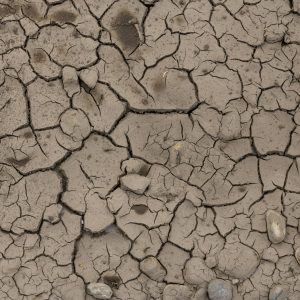Malaysia’s textile waste poses serious threat to environment
Country produces 195,300 tonnes of textile waste, largely ending up in landfills
PETALING JAYA, Malaysia (MNTV)– Malaysia’s staggering annual production of 195,300 tonnes of textile waste, largely ending up in landfills, exacerbates climate change and environmental pollution due to the slow decomposition of synthetic fabrics, The Sun reports.
Universiti Teknologi Mara Textile and Apparel Programme School of Industrial Technology senior lecturer Dr Najua Tulos explained that textile waste contributes to environmental pollution, with the decomposition time of textiles in landfills varying up to 200 years depending on the material composition and environmental conditions.
“Common textile fibers, such as cotton (natural fiber), may take between three months and five years to decompose. Synthetic fiber, such as polyester, which is derived from petroleum, is notably resistant to decomposition, taking between 20 and 200 years to break down in landfill environments.
“Factors such as moisture, temperature and oxygen levels affect the process of decomposition.”
She said decomposing synthetic textiles release methane, a greenhouse gas that accelerates climate change.
She added that textile waste contains harmful chemicals, including dyes, heavy metals and microplastics.
“When discarded clothing decomposes, the chemicals leach into the soil and groundwater, affecting agriculture and drinking water sources. For instance, the Klang River has been found to have high levels of industrial pollutants, some of which originate from textile and garment factories.
“Many clothes today are made from synthetic fibers, such as nylon and acrylic, which shed microplastics when washed. In Malaysia, rivers such as the Gombak River and the Klang River transport these microplastics to the ocean, harming marine life.”
Najua said due to limited landfill space, some textile waste is openly burned, releasing toxic gases that worsen air pollution.
This is a common issue at illegal dumpsites in Kuala Lumpur and Johor, where waste is burned to reduce volume.
She also said Malaysia imports large amounts of cheap fast fashion, with many garments discarded after only a few uses.
“Textile production has a huge environmental impact. Making one cotton t-shirt requires 2,700 liters of water, which is the same amount a person drinks in 2.5 years. The demand for new clothes also contributes to deforestation, water shortages and pollution from garment factories.”
She stressed that a circular economy is key to managing textile waste in Malaysia as recycling, reusing and upcycling textiles, along with supporting sustainable fashion and secondhand markets, could cut waste, reduce environmental harm and promote a greener future.
With government support and consumer participation, a circular fashion economy could become a reality, benefiting the environment and the economy, she added.
“Raising awareness on sustainable consumption is essential. Thrifting and upcycling help shift consumer mindsets from fast fashion to conscious consumption. People become more aware of the impact of their purchasing decisions, leading to more responsible shopping habits.”
Najua said Malaysia should adopt a combination of regulations, incentives and awareness programs to address textile waste effectively.
She said implementing Extended Producer Responsibility would require fashion brands to manage the disposal of their products by collecting, recycling or upcycling used textiles, similar to the European Union model in which companies fund waste collection and recycling programs.
“Nationwide textile recycling centers should be established by installing collection bins in public areas, malls and residential zones while improving infrastructure for sorting and repurposing textiles.










